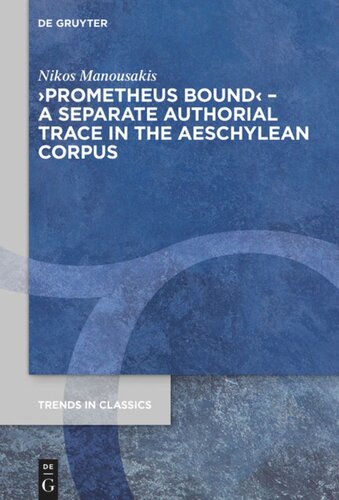

Most ebook files are in PDF format, so you can easily read them using various software such as Foxit Reader or directly on the Google Chrome browser.
Some ebook files are released by publishers in other formats such as .awz, .mobi, .epub, .fb2, etc. You may need to install specific software to read these formats on mobile/PC, such as Calibre.
Please read the tutorial at this link: https://ebookbell.com/faq
We offer FREE conversion to the popular formats you request; however, this may take some time. Therefore, right after payment, please email us, and we will try to provide the service as quickly as possible.
For some exceptional file formats or broken links (if any), please refrain from opening any disputes. Instead, email us first, and we will try to assist within a maximum of 6 hours.
EbookBell Team

0.0
0 reviewsClassics, Computer Science, and Linguistics are brought together in this book, in an attempt to provide an answer to the authorship question concerning Prometheus Bound, a disputed play in the Aeschylean corpus, by applying some well-established Computer Stylistics methods. One of the main objectives of Stylometry, which, broadly speaking, is the study of quantified style, is Authorship Attribution. In its traditional form it can range from manually calculating descriptive statistics to the use of computer-assisted methodologies. However, non-traditional Authorship Attribution drastically changed the field. It brought together modern Linguistics and Artificial Intelligence applications (machine learning, natural language processing), and its key characteristic is that it aims at developing fully-automated systems for the attribution of texts of unknown authorship. In this book the author employs a series of supervised and unsupervised techniques used in non-traditional Authorship Attribution–applied here for the first time in ancient drama. The outcome of the analysis indicates a significant distance between the disputed text and the secure plays of Aeschylus, but also various interesting (micro-linguistic) ties of affinity with other authors, especially Sophocles and Euripides.